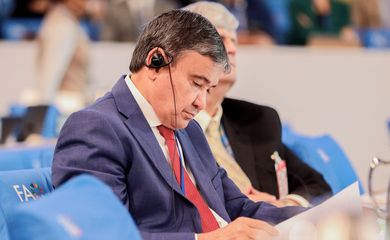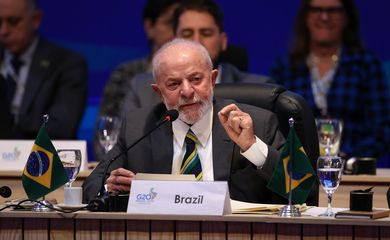G20 Social: Collective actions to eradicate hunger and poverty defined

Led by Brazil, multilateral organizations, countries, development banks, and philanthropic institutions announced on Friday (Nov. 15)—the second day of the G20 Social Summit in Rio de Janeiro—collaborative actions under the "Sprints 2030" initiative. These actions aim to provide large-scale support for proven, evidence-based initiatives led by national governments to combat hunger and extreme poverty.

The agreed commitments support the Global Alliance against Hunger and Poverty, an initiative of the Brazilian government, aimed at achieving the United Nations (UN) Sustainable Development Goals (SDGs) 1 and 2 by 2030.
The Global Alliance against Hunger and Poverty will be officially launched by President Luiz Inácio Lula da Silva on Monday (18) during the G20 Leaders' Summit. In 2024, Brazil holds the rotating presidency of the G20, which consists of 19 major countries and two regional bodies: the African Union and the European Union.
The announcement of concrete actions to eradicate hunger and extreme poverty is part of the Sprints 2030 strategy, which focuses on achieving large-scale results in areas such as sustainable food production, combating socio-economic inequalities, and eradicating global hunger.
Participants in the Sprints commitments are joining forces to achieve the following by 2030:
1. Reach 500 million people in low- and lower-middle-income countries with cash transfer programs and social protection systems by 2030;
2. Expand access to high-quality school meals for 150 million more children in countries with endemic child hunger and poverty;
3. Maternal health and early childhood initiatives will target an additional 200 million women and children aged 0 to 6;
4. Socio-economic inclusion programs aim to benefit an additional 100 million people, with a focus on women;
5. The Inter-American Development Bank (IDB) and the World Bank will provide billions in funding to support countries in implementing programs aligned with Global Alliance policies.
During the unveiling of the 2030 Sprints, Minister of Development, Social Assistance, Family, and Fight Against Hunger, Wellington Dias, emphasized that the announcements reflect the strong commitment of governments, international institutions, and financial funds. “They not only demonstrate that these actors are committed and will participate, but also clarify how they plan to contribute, who they aim to reach, which areas have been presented as efficient proposals, based on the experience of many countries, and which ones each announcement wants to prioritize,” he said.
Brazil's First Lady, Janja da Silva, expressed her belief that the Sprints 2030 announcements made on Friday would inspire more countries, institutions, and, most importantly, funders to join the Global Alliance against Hunger and Poverty in the coming months. "We are still far from fulfilling the commitments outlined in the Agenda with SDGs 1 and 2 for poverty eradication and zero hunger," she said. "But we still have time to take concrete, coordinated action, drawing on the vast experience of diverse global actors."
"We will not achieve sustainable development as long as millions of people are left behind, living in inhumane conditions. The Alliance's proposal reflects President Lula's historic commitment to addressing inequalities," added Janja da Silva.



